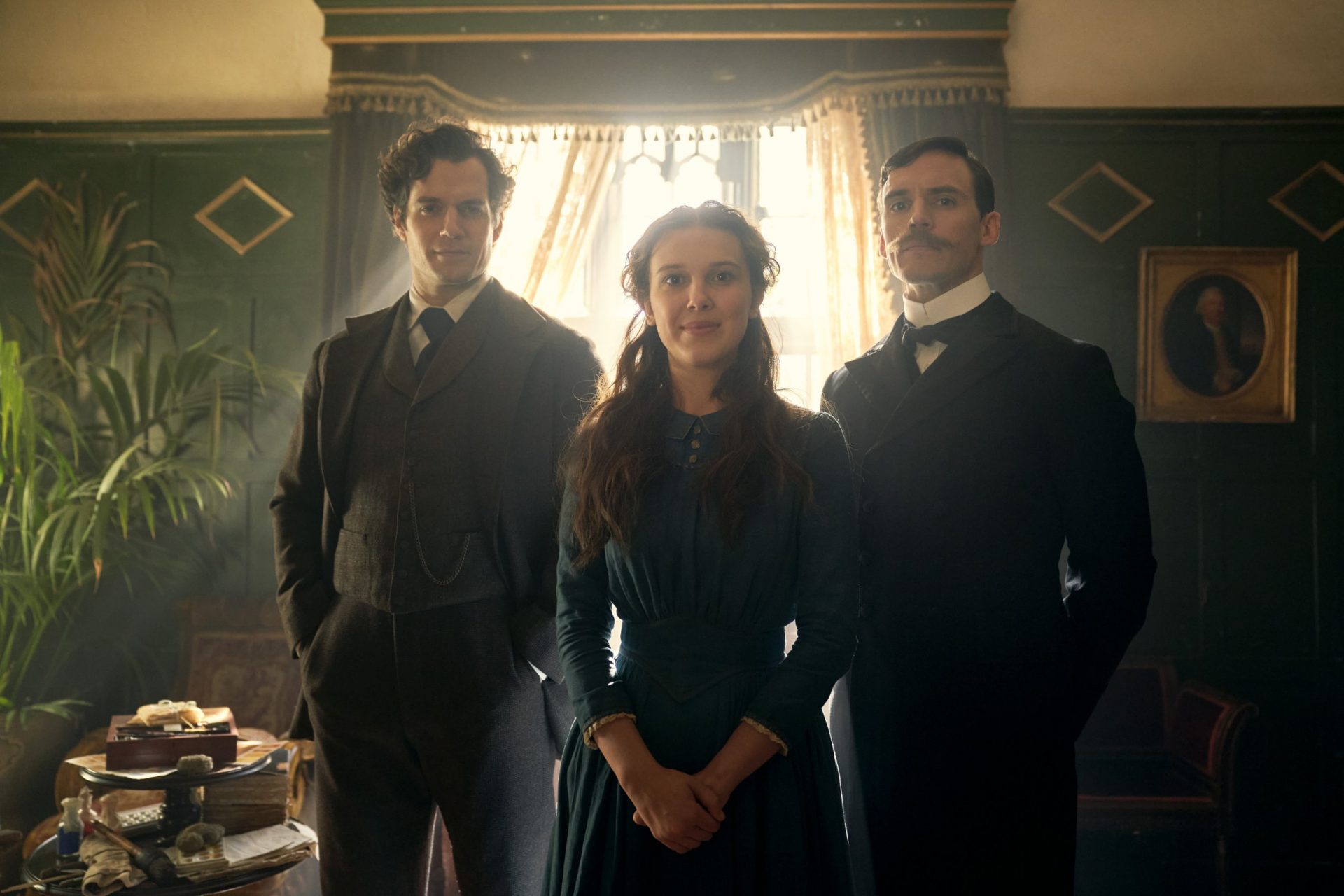It’s far from new, the notion of a third Holmes sibling, especially that of a younger, equally (if not more) brilliant sister. This time, with a missing mother, squabbling brothers, and all-new murder plot, Enola Holmes grounds itself in a warm English appeal with charismatic performances, humour and richly colourful cinematography.
A Holmes story is only as strong as its mystery, so how does Enola Holmes match up to the likes of ghostly hounds, time-travel and murderous Victorian brides? Character is the primary objective, with the intentions for a sequel evident throughout the film. Following the disappearance of their mother (played by Helena Bonham Carter), Enola Holmes summons her brothers back to aid in locating her. With voter reformations looming, a patriarchal threat seeks to prevent the new generation from shifting the status quo. Stumbling into the middle of things, a young Enola Holmes struggles to focus her energies on finding her mother as both her head and her heart tell her something vaster is afoot.
In no small part, Millie Bobby Brown catapults the energy and likeability of Enola. With such an honest, forthcoming presence, anyone unfamiliar with the actress outside of Stranger Things will soon have no doubts in recognising a staying power for years to come. Making fourth-wall breaks natural and carrying what should otherwise be a forced romance into something quaint, Brown depicts a human performance in a genre known for pedestalling its protagonist.
Enola, thankfully, isn’t written as a perfect, feminist-inspiring icon devoid of a sense of personality. Perhaps to the film’s brilliant triumph, Enola makes mistakes – she’s not a fully-fledged, infallible character. The youngest Holmes sibling is instead a petulant and headstrong girl making a metaphorical journey into becoming a woman and understanding the nuances of the world. This isn’t to say the film won’t inspire; on the contrary, there’s a tremendous effort to invigorate a generation of audiences by tying history (albeit dramatised) into the story. From inconsequential instances where Enola has to use a male visage to traverse the world, to discussions on the ‘preservation’ of England’s private estates, Jack Thorne’s screenplay of Nancy Springer’s book toys with enough commentary to sharpen the mind, but not overpower the fun.
Taking the mantle of Sherlock is Henry Cavill, turning in a pleasant if formulaic performance. Here lies a principal issue: the distractions of an all-star cast. Capable, sensational, and relishing their roles, Enola Holmes fills its roster with heavyweights of British cinema who are criminally underused. From Adeel Akhtar as the downtrodden LeStrad, to treasures Frances de la Tour and Fiona Shaw as distorted victims of patriarchal influence, their inclusions are at first welcomed but are so seldom used they become distractions.
Suffering the worst (in a running theme of Sherlock adaptations and spinoffs) is Mycroft, the eldest brother, played by Sam Claflin. In emphasizing the relationship between Enola and Sherlock, Mycroft is woefully underwritten and lacks the depth his siblings possess. Often the sharpest of the Holme’s children, but the most complacent, Claflin’s Mycroft embodies the archaic will of the ruling elite, and his primary concern is to place Enola in the care of someone who will shape her into a woman of his wishes, not her design.
Embarking on an expedition as a detective for a new generation, Millie Bobby Brown is the heart of the film. The groundwork is lain. Stoking memories of late eighties live-action family films with its reliance on humour, charming musical scores and brief dark imagery, Enola Holmes is an elementary watch, with enough enigmas left to keep the game afoot for Netflix’s followup.
Screening now on Netflix
